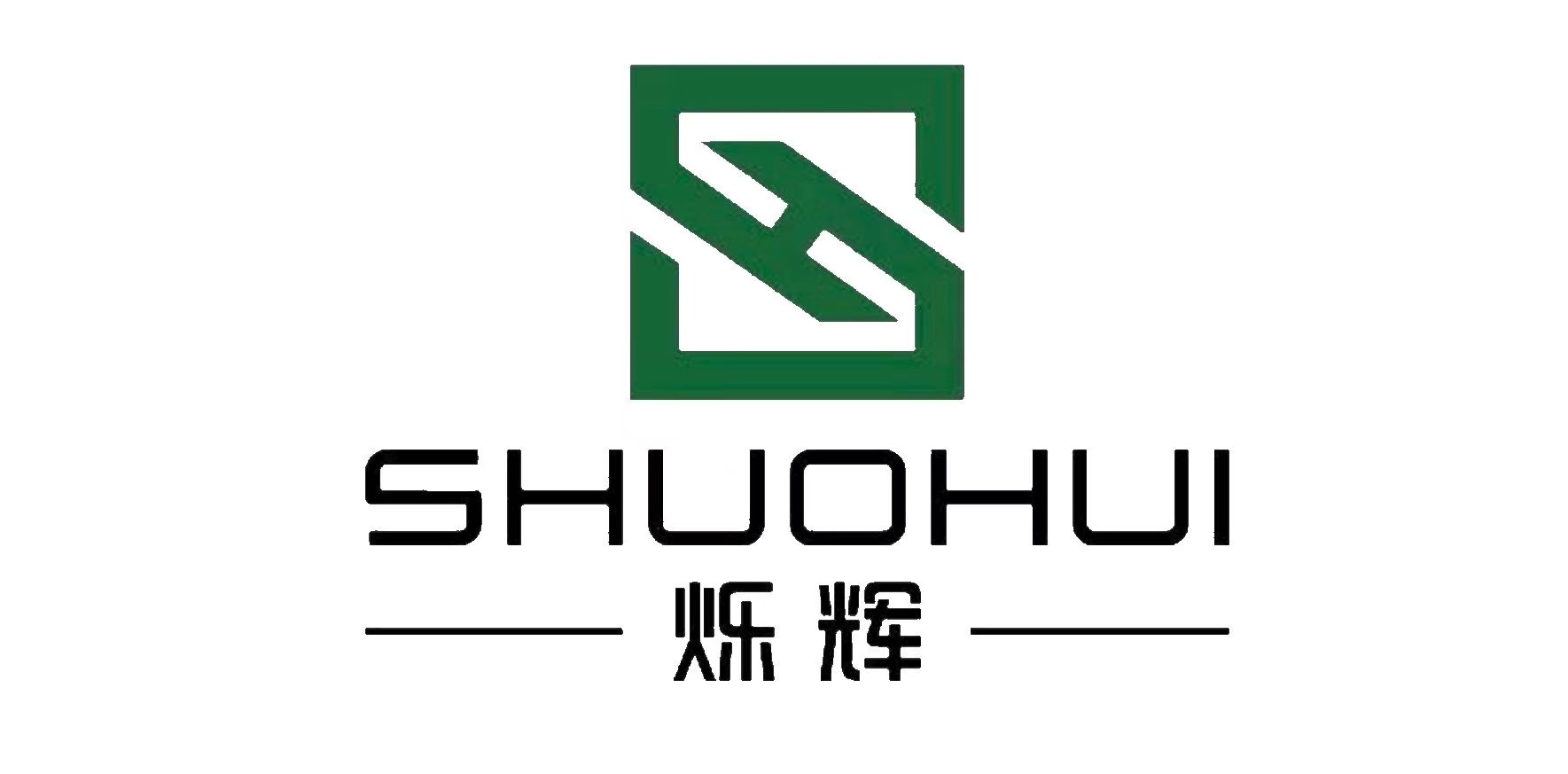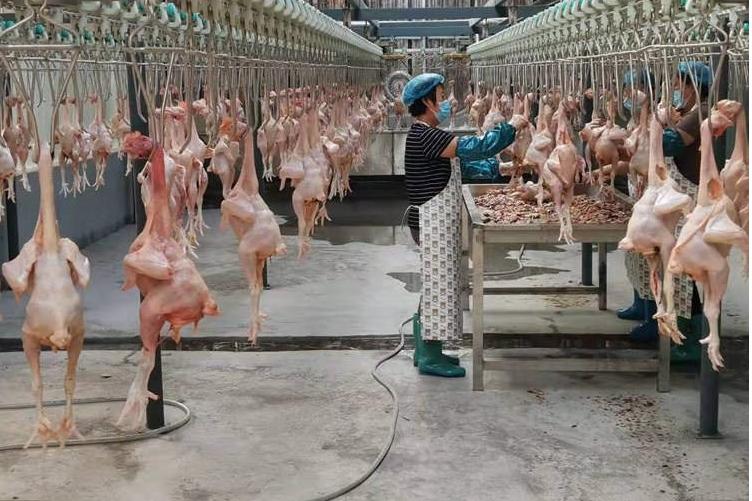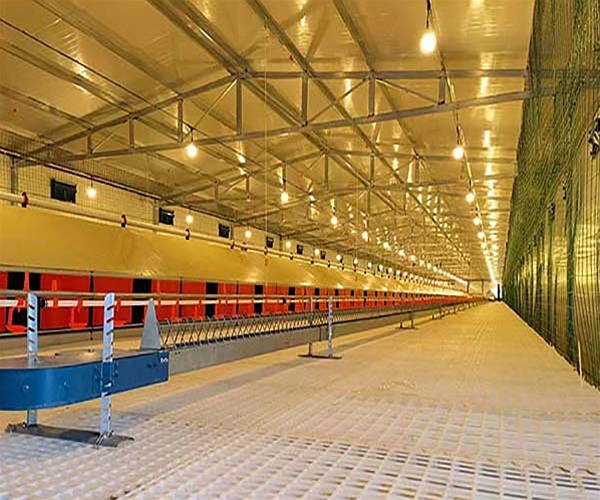With the growing global demand for healthy and natural foods, the poultry business has become an increasingly attractive and lucrative industry. Whether you’re looking to enter poultry farming, meat processing, or retail, chicken remains one of the most popular and affordable sources of protein worldwide. In this article, we provide a comprehensive guide to help you succeed in the poultry business, from breeding to processing and marketing.
Market Analysis: The Prospects of the Poultry Business
According to global market research data, chicken is one of the most consumed meats in the world, with its consumption increasing year by year. This trend is particularly pronounced in countries like China and India, where the demand for chicken is rapidly rising due to various factors:
- Affordability: Compared to beef and pork, chicken is generally more cost-effective to produce, allowing it to be sold at a competitive price, which attracts a broad consumer base.
- Nutritional Value: Chicken is rich in high-quality protein, vitamins, and minerals, while being low in fat, meeting modern consumers’ growing demand for healthy eating.
- Versatility: Chicken can be cooked in a variety of ways—from traditional steaming, boiling, and stir-frying to modern grilling, frying, and marinating—making it adaptable to different cultural tastes.
As a result, the poultry business presents strong market potential globally and is a highly attractive investment opportunity.
How to Start a Poultry Business?
Whether you’re looking to enter poultry farming, chicken processing, or retailing, the first step is to understand the industry’s current landscape, target market, and relevant regulations. Here are several important steps to get started:
1. Choose Your Business Model
Before entering the poultry industry, you need to determine your business model. Common poultry business models include:
- Poultry Farming: Breeding, raising, and selling chickens. Farms can specialize in meat chickens (broilers), egg-laying hens (layers), or dual-purpose chickens (both for eggs and meat).
- Chicken Processing: Processing live chickens into various meat products such as chicken breasts, wings, thighs, and fillets, which are then distributed through cold-chain logistics to supermarkets, restaurants, and other outlets.
- Chicken Retailing: Selling fresh or frozen chicken products through supermarkets, restaurants, food stores, or e-commerce platforms.
Each model comes with different investment requirements, operational challenges, and risks. Choose a model that fits your resources, experience, and market needs.
2. Site Selection and Facility Setup
To run a successful poultry farming and processing business, selecting the right location and setting up the appropriate facilities is essential. For example, poultry farms should be located away from urban areas to avoid pollution and disease transmission. Processing plants must meet food safety standards and be equipped with refrigeration, processing, and storage facilities. Regulations in different regions may affect your site selection, so it’s important to conduct thorough market research before making a decision.
For poultry farming, especially broiler farming, choosing efficient and cost-effective equipment is critical. The Shuohui Broiler Cage is a modern poultry farming solution that has become the preferred choice for many farms due to its advanced design and functionality. Below are the key advantages of Shuohui Broiler Cages:
Advantages of Shuohui Broiler Cages
- Efficient Space Utilization: The Shuohui broiler cage uses a vertical farming design, maximizing the use of available space and allowing more chickens to be raised in a given area. This high-density farming method helps reduce operational costs and increase farm profitability.
- Durable Materials: Made of high-strength steel and high-quality coatings, Shuohui broiler cages are corrosion-resistant, rust-proof, and designed for long-term use. This durability significantly lowers maintenance costs and reduces the need for frequent equipment replacement.
- Optimized Ventilation and Lighting: Shuohui cages feature an efficient ventilation system to prevent excessive heat or cold, maintaining a stable and optimal environment for the chickens. The cages also provide uniform lighting, supporting healthy growth and production.
- Automated Management Features: Many Shuohui broiler cages come equipped with automatic feeding and watering systems, reducing labor costs and ensuring consistent supply of feed and water. This automation not only improves efficiency but also helps maintain the health of the chickens.
- Reduced Disease Transmission: The design of Shuohui broiler cages minimizes direct contact between chickens, reducing the risk of disease transmission. A well-managed environment helps maintain the health of the flock and decreases the occurrence of outbreaks.
- Easy to Clean and Maintain: Shuohui cages are designed for easy cleaning, which simplifies daily hygiene maintenance. This reduces the time and cost involved in cleaning the cages and helps prevent the growth of harmful bacteria.
3. Obtain Necessary Permits and Certifications
Engaging in the poultry business, especially breeding and processing, requires compliance with local food safety and animal health regulations. You’ll need to apply for relevant business licenses, breeding permits, and food hygiene certifications. These certificates not only ensure that you’re operating legally but also build consumer trust in the quality of your products.
4. Source High-Quality Chicks and Feed
Whether you’re raising broilers or laying hens, sourcing high-quality chicks is essential for ensuring healthy growth and high productivity. Additionally, the quality of feed directly affects the health of the chickens and the quality of the meat, so it’s vital to choose reliable suppliers that provide balanced, safe, and nutritious feed.
Operations Management
The success of a poultry business is not only determined by the initial investment but also by effective day-to-day operations management. Here are some key management considerations:
1. Disease Control
One of the biggest challenges in poultry farming is disease control, especially with infectious diseases like avian flu. Regular health monitoring, vaccinations, and biosecurity measures are essential for preventing outbreaks. It’s also crucial to maintain close contact with veterinarians to ensure the flock’s health and address any health issues promptly.
2. Environmental Control
Chickens require specific environmental conditions to grow optimally, including appropriate temperature, humidity, ventilation, and lighting. By maintaining optimal environmental conditions, you can improve growth rates and reduce feed consumption, leading to higher production efficiency. Modern farming equipment like Shuohui Broiler Cages helps regulate temperature and humidity, ensuring that each chicken grows in the ideal environment.
3. Production Records and Data Analysis
It’s important to keep detailed records of each chicken’s growth, feed consumption, and vaccination history. By analyzing production data, you can identify potential problems early and adjust your farming strategies to improve efficiency and reduce costs.
4. Efficient Supply Chain Management
For chicken processing and sales, establishing an efficient supply chain management system is crucial. Ensuring a steady supply of raw materials, timely transportation, and compliance with cold-chain requirements will help maintain product quality and competitiveness. Long-term partnerships with suppliers and distributors are vital for stable operations.
Marketing
A successful poultry business not only requires good production practices but also effective marketing strategies. Here are some methods to boost your poultry business:
- Brand Building: Creating a strong brand identity will increase consumer awareness and loyalty. Use both online and offline channels to advertise and promote your brand through social media, advertisements, and other marketing efforts.
- Online Sales: With the rise of e-commerce, more consumers are buying food products online. Setting up an online store, especially on major platforms like Alibaba, JD, or Taobao, will help you reach a wider audience and tap into new customer segments.
- Partnerships and Distribution: Establish partnerships with supermarkets, restaurants, and fast food chains to expand your market reach. Having regional agents or distributors can help you penetrate more markets and increase your sales.
Conclusion
The poultry business offers significant potential but also comes with its share of challenges. Success in this industry requires efficient management, from breeding to processing to marketing. By selecting the right business model, focusing on disease prevention, controlling the environment, and enhancing supply chain management, you can thrive in this competitive market and achieve long-term profitability.
In particular, the choice of modern farming equipment, such as the Shuohui Broiler Cage, plays a crucial role in improving production efficiency and reducing costs. With its superior space utilization, durable materials, and automation features, the Shuohui Broiler Cage offers invaluable support to poultry farms, boosting production and ensuring healthier chickens.
Whether you’re new to the poultry industry or an experienced operator, it’s important to stay informed and adapt to market changes to stay competitive. The future of the poultry business remains full of opportunities.


